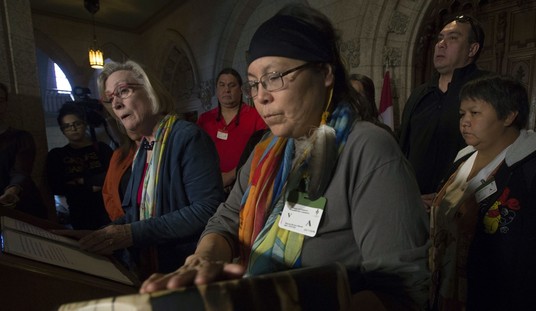Someday, North Korea’s government is going to go, and when that country busts open the headlines and TV news will be filled with questions about why the world did not do more to help people trying to escape from under the boot of Kim Jong Il. Hundreds of thousands of North Koreans have risked their lives — and many have died –trying to flee. Few help these refugees, few countries welcome them — fearing that to make it easy for them to flee might lead to an exodus of millions. The United Nations runs no sanctuaries for them. Perforce, the escape route for most North Koreans runs through China, but they find no safety there. The Chinese government refuses to grant them even safe passage to a third country. If they are caught, the policy is to send them back to North Korea. There, for the “crime” of trying to escape North Korea, some end up in labor camps where prisoners are starved and worked to death. Some are executed outright, in some cases as a public display meant to discourage others. North Korean refugees are the most disenfranchised people on earth.
Small numbers of these refugees do manage the dangerous journey through China, and almost all of them go on to South Korea — which as the chief haven has by its own official count received a pitiful total of just over 12,000 over the past half century. Today, in theory, they can also come to America. In 2004, President Bush signed an act mandating U.S. help for refugees from North Korea. This is not only a matter of compassion. It is also the best hope for a peaceful way of undermining the long, murderous, missile-peddling, bomb-building tyranny of the Kim dynasty — by reaching past the regime to offer the captive population a way out, and giving these refugees at least a chance to form a dissident diaspora that can speak up about the horrors of Kim’s government (something that has been discouraged for years by craven politicians in South Korea).
But passage to the U.S. remains elusive. Over the past four years, only a few dozen North Korean refugees have made it over the hurdles — geographic, life-threatening, and bureaucratic — to arrive in the U.S.
Which brings me to a small group of North Korean refugees right now being held in Thailand, waiting to leave for America. They are being held in a detention center for illegal immigrants from a number of countries, a place which according to sources I have spoken with usually has anywhere from 100-300 people crammed into one big room. In the heat of Bangkok, there is no air conditioning. They are required to pay a fine for having entered Thailand illegally — never mind what they are running from. Three of these refugees were allowed recently to go on to the U.S. for medical reasons. But the rest have all been in this detention center for more than a year, in some cases for more than two years — bound for the U.S., but waiting for the Thai and American authorities to grind through the process of letting them come to America.
They are by now desperate enough so that last week they began a hunger strike. They have also written a letter. Originally in Korean, it was translated into English and passed to me yesterday: “A letter of request to the United States of America!”
They ask, “Why have we become prisoners here in a detention center where the United Nations is present?” They write: “The Thai government puts the responsibility of the processing on the United States. The U.S. Embassy avoids any responsibility or fault by saying they have not received an approval from Thailand.”
They ask President Bush, who was moved to tears by the story of a North Korean defector, “When will we go to America?”
They say: “It is hard to understand why here in Thailand where it’s not North Korea nor China and where many Americans frequent, we still are watching our lives pass by, suffering in this refugee detention center.”
Yes, it is hard to understand. Whatever America’s national debates over immigration policy, what does it take for the White House — and the State Department — to understand? In dealing North Korea, both wise strategy and human decency would entail treating Kim Jong Il as the outcast, and helping the refugees from his regime. Instead, we seem to have arrived — and not for the first time — at the very opposite.









Join the conversation as a VIP Member